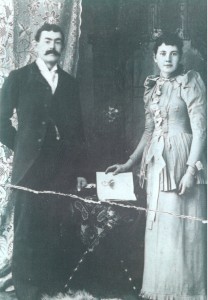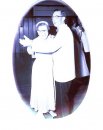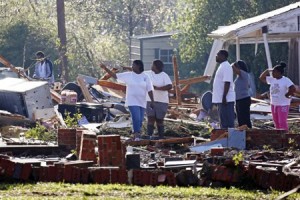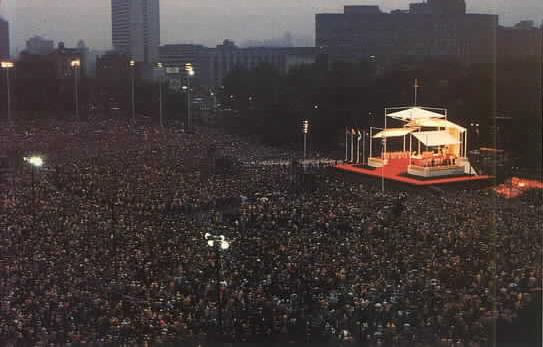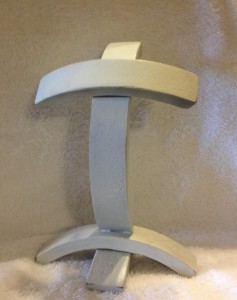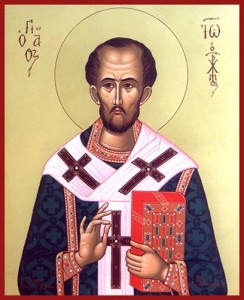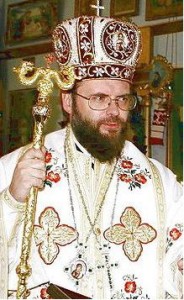
PASTORAL LETTER ON THE FEAST OF THE LORD’S RESURRECTION 2014
† NICOLAE
by the mercies of God
Archbishop of the Romanian Orthodox Archdiocese in the Americas
To our Beloved Clergy and Orthodox Christians
peace and holy joy from Christ the Risen Lord,
and from us hierarchical blessings.
I await the resurrection of the dead
and the life of the world to come (The Creed).
Most Reverend Fathers,
Beloved Faithful,
Christ is risen!
For 2000 years we have greeted one another on this holy morning with these words, which proclaim a great miracle, the victory of life over death, a miracle that happened at a certain time and place, but has implications beyond time and the world we know. Through this greeting we both proclaim the historical event of the Savior’s Resurrection and witness to our belief that this event has value for us now and in eternity.
St. Matthew the Evangelist describes for us the first meeting with the Risen Christ as one having an historical nature: So they went out quickly from the tomb with fear and great joy, and ran to bring His disciples word. And as they went to tell His disciples, behold, Jesus met them, saying, “Rejoice!” So they came and held Him by the feet and worshiped Him. Then Jesus said to them, “Do not be afraid. Go and tell My brethren to go to Galilee, and there they will see Me (Matt. 28:8-10). We know that to this encounter were added others which establish a historical truth, the fact that Christ, who received death on the Cross and was buried in a tomb, arose on the third day. The historical nature of this event is assured by the multitude of the testimonies of those who encountered Christ after He had risen from the tomb.
Father Dumitru Stăniloae explains the perspective from which this historical event should be understood: “If the persons to whom the Risen Christ appeared were historical persons, then through them could be verified, according to all the rules of the historical method, if not the manner of Christ’s Resurrection and the character of His Risen Body, at least the fact of the Resurrection” (Dogmatic Theology). The Resurrection of Christ is an event that surpasses the ordinary history of humankind through the fact that it overturns man’s advance towards death. And through the participation of persons connected to certain places, times, and circumstances, this meta-historical event touches history. If we see history as a rigorous repetition of similar kinds of phenomena, then the Resurrection of Christ marks an opening of history toward an order that is above strictly immanent causality, as Fr. Stăniloae goes on to say. “The Resurrection is the single event that proves not only that history is made in collaboration with powers that are above human powers, but also that history is destined to be raised up to a higher plane, to that of incorruptible life, a spiritualized plane where the freedom of the human spirit reigns, rather than the uniform processes of nature.” The Resurrection changed the course of human history and gave it the meaning of eternity. The Resurrection introduced into time the One outside of time, the Eternal One. Christ entered into a certain relationship with history, but historical persons were also given the ability to recognize the meta-historical fact of the Resurrection.
We also, 2000 years after the event of the Resurrection, can experience this change that was introduced into history. That which we proclaim to one another is not only an historical event, but is the new reality of our life in history. St. Paul the Apostle tells us that we have also risen with Christ: “God, who is rich in mercy, because of His great love with which He loved us, even when we were dead in trespasses, made us alive together with Christ (by grace you have been saved), and raised us up together, and made us sit together in the heavenly places in Christ Jesus, that in the ages to come He might show the exceeding riches of His grace in His kindness toward us in Christ Jesus” (Eph. 2:4-7). We have risen with Christ and we live a new life. Christ’s Resurrection is a source of divine life for us in our earthly life, a source of power, of cleansing, and of growth in communion with God and our fellow man. “Let us cleanse our senses that we may behold Christ shining like lightening with the unapproachable light of Resurrection,” says a verse from the Paschal Vigil. We also meet the risen Christ in the Holy Eucharist, and this encounter brings about our change, our transition to the new life.
In a prayer after communion the priest says, “O Great and most holy Pascha, O Christ, Wisdom, Word, and Power of God, grant us to partake of You more perfectly in the unwaning day of Your kingdom.” The perfect and complete encounter with Christ will take place at the end of the ages, in the eternal Kingdom of God. Confessing the historical fact of the Resurrection, living with the Risen Christ during the time of our earthly life, Christians pray at the same time, in the Our Father, that the Kingdom may come, and they witness in the Creed to the expectation of the universal resurrection and eternal life. The history in which the event of the Lord’s Resurrection took place will be fulfilled at the Second Coming of Christ. History is not the realm of perfection, but of movement toward perfection. It is the realm of incomplete revelation, says Fr. Stăniloae. St. Paul tells us that “the Lord Himself will descend from heaven with a shout, with the voice of an archangel, and with the trumpet of God” (1 Thes. 4:16), and that this event will take place “in a moment, in the twinkling of an eye, at the last trumpet (1 Cor. 15:52). History will have an end that will mark the unending day of the Kingdom of God.
Most Reverend Fathers, Beloved Faithful,
Confessing the Lord’s Resurrection as an historical fact that will be revealed in its fullness at the second coming of Christ, it is fitting that we perceive the meaning of history and of the world in which we live. Our history is one of turmoil, of “false prophets, increasing wickedness, and cooling love” (Mt. 24:11-12). But Christ Himself teaches us to persevere in patience and in fulfilling our mission, for this is how we will be saved. We proclaim the God who descended into history, the God-man who triumphed over death and rose again, and we are still filled with hope. For hope does not come from man, nor from the world, but from the Victor over death and the Giver of eternal life. With this hope it is fitting that we should always proclaim that Christ is risen!
I embrace you in Christ, the Risen Lord, and I wish you a Joyful Feast with health, peace, and joy in your families and parishes!
Your brother in prayer to God,
† NICOLAE
Chicago, The Feast of the Lord’s Resurrection, 2014

